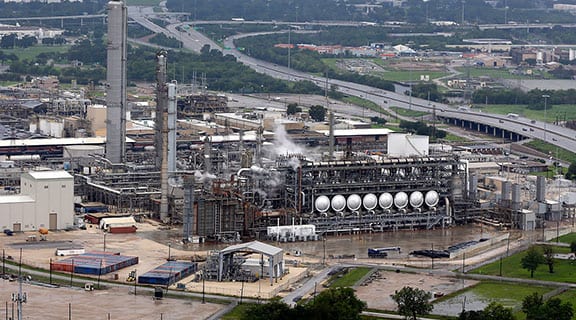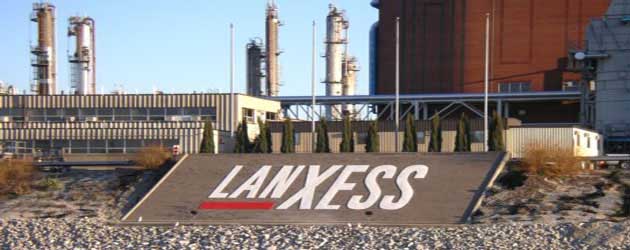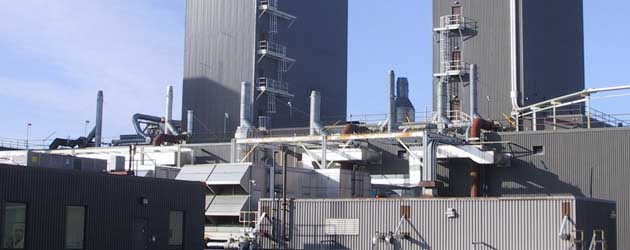Petrochemicals are organic chemical products produced from hydrocarbon based materials such as oil and gas.
The processes and operations required to produce petrochemicals vary. Production methods include catalytic cracking, which utilizes high pressure and high temperatures to crack natural gas by repeated compression and distillation, or catalytic reforming which employs high-temperature steam, pressure and a catalyst to produce products.
Environmental Noise Impact
The large petrochemical plants and refineries that produce these products are highly regulated concerns because of the materials and processes involved and their potential impact on nearby communities and the environment.
In some jurisdictions, noise is recognized as a type of environmental pollutant and a plant’s noise levels must be assessed when seeking regulatory permitting and approvals for new facility construction, plant expansions or for the addition of new processes or equipment.
Unique Environmental Noise Challenges
Petrochemical faculties bring some unique noise and acoustical engineering challenges. Unlike most other industrial facilities, petrochemical processes operate largely outdoors, with the processing equipment located on open-frame steel structures. These operations which include pumps, compressors, blowers, agitators and coolers, run out in the open, with limited barriers in place to restrict equipment noise from carrying beyond the confines of the plant.
Compounding this is the sheer size and scale of these operations, which incorporate a large and varied amount of stationary sound sources, along with miles of complex, intertwined piping systems.
As a result, the noise levels generated by these facilities can often be significant. Identifying key, major contributors to the excesses within the plant labyrinth as measured from nearby community locations can be challenging.
Our Expertise and Know-how
HGC Engineering has worked internationally with plant processing engineers and their consulting teams to provide accurate and cost-efficient, site-wide noise assessments and mitigation solutions of petrochemical complexes both large and small.
We are leaders in the use of sound intensity measurement techniques that can effectively identify, isolate and rank individual sources in a complicated sound field as produced by large petrochemical facilities.
Acoustical lagging of Pipes
We are also experts in the optimization of acoustical lagging (wrapping) of pipes in industrial complexes. In fact, we were commissioned by The Pipeline Research Committee of the American Gas Association to investigate and produce a report study on the acoustical performance of pipe lagging systems.
Acoustical Engineering Services Include:
- Feasibility Studies
- Baseline Noise Studies
- Site Wide Acoustic Assessment Reports (AAR) for Environmental Compliance Approvals
- Noise Contouring and modelling
- Sound Audits/Acoustical noise monitoring during construction operation
- Complaint Investigation
- Occupational Noise Exposure Assessments
- Equipment Vibration Mitigation/Isolation
- Noise Mitigation Support
- Noise Impact Assessments (NIAs) to meet The Alberta Utilities Commission (AUC) Directive Rule 012: Noise Control
- Acoustic Assessments to satisfy the noise guideline requirements of the IFC (International Finance Corporation, World Bank Group), and IIF (Inter-American Investment Corporation, Inter-American Development Bank)


Flint Hills Resources Propylene Facility, Houston, Texas

Invista Nylon Production Facility

LanXess Butyl Rubber Plant

Industrial Facilities and Environmental Noise Control

A Breakthrough “Smarter” Method for Assessing Workplace Noise Exposure

What is Sound Intensity Measurement and Analysis?
Who We Help
Our Markets
Engineers, Architects, Planners, Environmental Health & Safety Specialists, Developers, Owners/Operators and Property Managers in sectors including:
Need Answers?
Reach out to our acoustical consultants now.